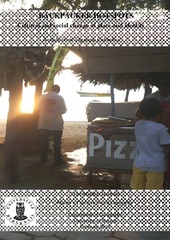Backpacker hotspots: Cultural and social change of place and identity. A study from Taganga, Colombia
Master thesis
Permanent lenke
https://hdl.handle.net/1956/4310Utgivelsesdato
2010-02-01Metadata
Vis full innførselSamlinger
- Department of Geography [634]
Sammendrag
This study examines the social and cultural impacts of backpacker tourism in a small coastalColombian village. The national security in Colombia has improved much the last decade andTaganga has hence been established as a backpacker hotspot with increased tourism arrivalsevery year. Previous characteristics of an isolated town of fishermen and a traditionalorganization of the economy have been exchanged with capitalism, modernization andWestern influences through in-migration and backpacker arrivals. This is a thesis aboutbackpacker tourism, and foremost about the challenges met by local residents in how tohandle the increasing tourist masses and how to continuously reconstruct their own identityboth separately from and in connection to tourism. Through engaging with theories of placeidentity, place meanings and social representations of place I seek to understand culturalbelonging and meanings attached to Taganga. The empirical work is based upon qualitativemethods whereby I have analysed the identities and cultures existing in Taganga, bothregarding native inhabitants, backpackers and in-migrants from elsewhere in Colombia. Theanalyses have recognized the complexity that exists within defined social units, and the manyways different groups of people comprehend and give meanings to place. Differentconceptions of place are utilized and necessary for understanding how and why differentpeople engage differently with one particular locality.
Utgiver
The University of BergenOpphavsrett
The authorCopyright the author. All rights reserved
